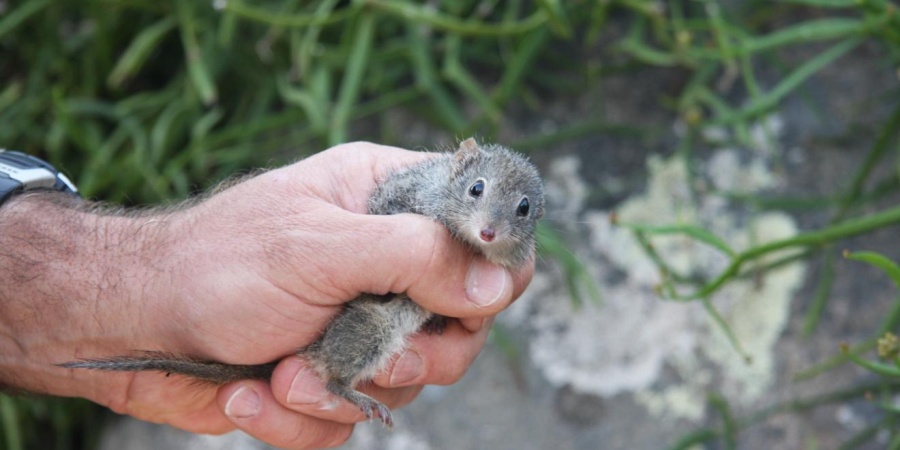
Dibbler
- 24 Dibblers will be released at Dirk Hartog Island National Park for the first time
- Since 1997 over 900 Dibblers bred at Perth Zoo have been released into the wild
One of Australia's smallest marsupial species will be reintroduced to Dirk Hartog Island National Park for the first time since it went extinct from the area centuries ago.
Twenty-four endangered Dibbler joeys, born at Perth Zoo along with three adults, will be released to the island on October 7 by staff from the Department of Biodiversity, Conservation and Attractions.
Before their release, the Dibblers will be microchipped and genetic samples will be collected. A dozen will be fitted with radio collars so researchers can track their movements.
The tracking will allow the team to identify habitat preferences at the new location to help guide future releases and conservation efforts.
The joeys were bred from adult Dibblers collected from Jurien Bay islands earlier this year, some were the descendants of animals previously bred at the Zoo and released to the wild.
Since 1997, more than 900 Dibblers have been bred and released at sites including: Escape Island in Jurien Bay, Gunton Island, and mainland parks and reserves in the South-West.
The Dibbler was once found as far north as Shark Bay in Western Australia, including Dirk Hartog Island. They are one of 10 native species lost from the area following European settlement and the introduction of sheep, goats and cats.
Dirk Hartog Island became the world's largest island to have cats, sheep and goats fully eradicated last year.
Comments attributed to Environment Minister Stephen Dawson:
"The additional release of Dibblers at Dirk Hartog Island will help the habitat return to what it once was in 1616; and offers security to a species that would have struggled to survive.
"Dibblers may be small, but these carnivorous marsupials play a very big role in the ecosystem, they are both predator and prey, and also pollinators in their habitat.
"Thank you to the collaborative efforts by the dedicated staff at the Department of Biodiversity, Conservation and Attractions to save this endangered species."